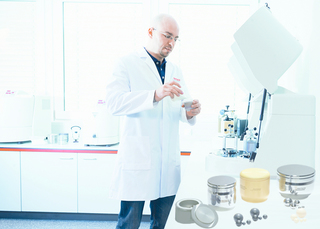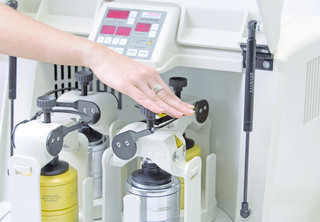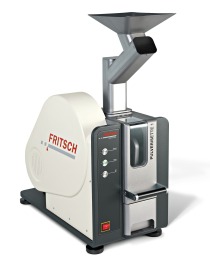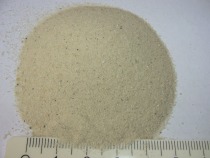Simplifyied grinding, mixing, alloying, homogenising in the daily work
12.07.2021Planetary Ball Mills are first choice for fast, loss-free fine grinding in the areas of Geology, Mineralogy, Ceramics, Chemistry, Biology, Pharmaceuticals, Metallurgy and Material Technology. The unique FRITSCH Planetary Mills range is suitable for efficient sample preparation for analysis.
 FRITSCH Planetary Ball Mills classic line
FRITSCH Planetary Ball Mills classic line
© FRITSCH
FRITSCH Planetary Ball Mills classic line guarantee safe clamping of the grinding bowls, offer particularly easy, ergonomic operation and fast and easy cleaning. And are characterised by consistent reproducibility and long, reliable service life even under continuous, heavy duty usage.
A final fineness below 1 µm can be achieved and the grinding process can be performed dry, in suspension or in inert gas. In addition to comminution, it is also possible to use the FRITSCH Planetary Mills classic line for mixing and homogenising of emulsions and pastes or for mechanical alloying and activation in material research.
Advantages with the Planetary Mills classic line:
· Fast grinding with up to 800 rpm down to a final fineness < 1 µm
· Safe clamping of the bowls with the Safe-Lock-System
· Simple, ergonomic handling and easy cleaning
· Grinding bowls and balls in 7 different materials available to avoid undesired abrasion
 Fast and reliable: The practical Safe-Lock-System
Fast and reliable: The practical Safe-Lock-System
© FRITSCH
Especially convenient for exact, reproducibility and grinding of smallest sample amounts is the electronic timer: adjustable to the second and a programmable reversing feature. The Safe-Lock System, which is delivered with a torque wrench, enables simple and safe clamping of the grinding bowls – absolutely risk-free.
Four different models of FRITSCH Planetary Mills classic line are available – with different rotational speeds, feed sizes up to 10 mm, with 1 to 4 working stations for different sample quantities of 0.5 ml to 900 ml.
The video shows how to obtain an optimal sample preparation for first-rate analysis for example of particle size or an XRF-analysis of a homogeneous sample to avoid analysis errors. Also on view: The wide range of FRITSCH Planetary Mills and the different materials and sizes of the grinding bowls and balls available.


